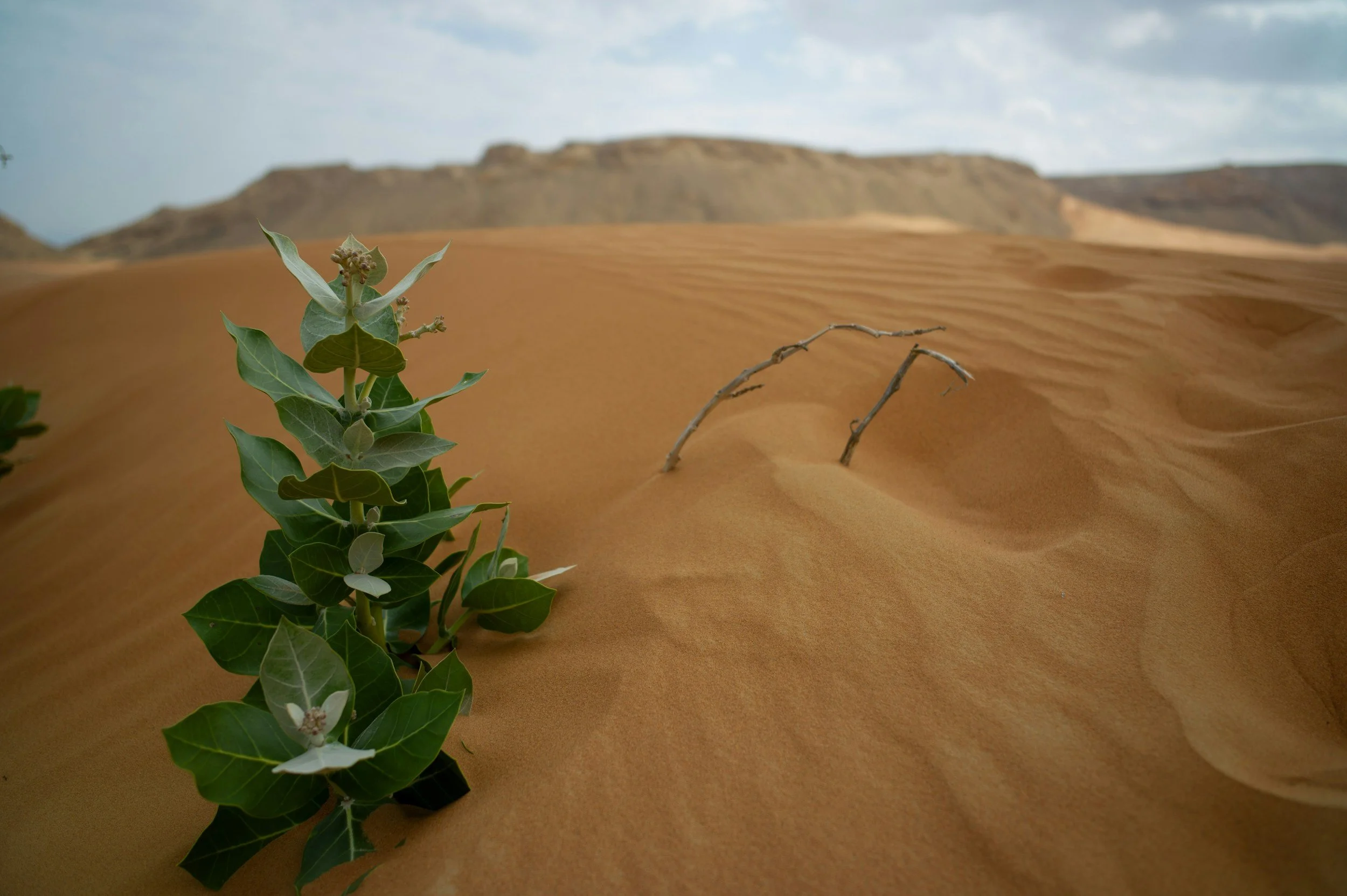Avoidance as Wisdom
There's a particular kind of dread that shows up this time of year. Maybe it starts as a tightness in your chest when the group text lights up about Christmas plans. Maybe it's the way your stomach drops when someone asks, "So, are you going home for the holidays?"
If that's you right now, I want to say something that I hope you’re not hearing for the first time:
If it feels hard, it’s because it is hard.
The Fern in the Desert
I use this metaphor a lot with clients, because I think it reframes everything: Imagine a fern planted in the middle of a desert. The fern is wilting, struggling, barely surviving. Would we ever think to ask if the fern is doing something wrong? Do we wonder if it’s not trying hard enough?
No. The fern is doing exactly what a fern does. It's just been placed in an environment that was never meant for it.
So many of us grew up as ferns in deserts. We were planted in families, systems, or dynamics that couldn't meet our needs. Not fully. Perhaps enough to where we survived, but not enough to really thrive. Yet, we may have determined that those needs were actually just “wants”, because we didn’t actually die. We may have been shamed for wanting more- subtly, or directly. How could we be upset if we didn’t “have it as bad” as others? Were we simply selfish, ungrateful little “brat”s? It’s not that we stopped needing more to thrive, it’s that we soaked up drops of nourishment where we could and how we could. Often, that was outside of those systems.
That adaptation? That was wisdom. That was your nervous system doing its job.
When "Home" Doesn't Feel Safe
Here's what I know about trauma: it's sneaky. It doesn't always look like flashbacks or nightmares. Sometimes it looks like your body going on high alert the moment you pull into your parents' driveway. Sometimes it's the way you suddenly can't access your words at the dinner table, or how you find yourself playing a role you thought you'd outgrown years ago.
Your nervous system doesn't know the difference between "actual threat" and "this feels like that time I wasn't safe." It just knows the pattern. And it responds.
So when you feel that dread, that tightness, that urge to cancel plans and stay home in your pajamas—that's not dysfunction. That's your body remembering. That's protection.
Avoidance Isn't Always the Enemy
In therapy, we talk a lot about avoidance. And yes, sometimes avoidance keeps us stuck. Sometimes the path forward really does require walking toward the hard thing.
But here's what doesn't get said enough: sometimes avoidance is wisdom.
Sometimes "I don't want to go" is actually "I know this environment isn't safe for me." Sometimes "I can't do this" is actually "I'm honoring what I need." Sometimes the most self-compassionate thing you can do is not show up.
You don't owe anyone your presence at the cost of your peace.
Permission Slip
So consider this your permission slip, from a therapist who has spent years sitting with people who are struggling through the "most wonderful time of the year":
You can skip the gathering. You can leave early. You can set the boundary. You can choose the found family over the biological one. You can stay home. You can feel sad about it and still know it's the right choice.
You can be a fern who has finally stopped apologizing for not thriving in the desert.
One More Thing
If you do choose to show up to the dinner, to the family, to the hard thing, I hope you can bring some compassion with you. Not for them (though that's fine too). For you.
Because you might get activated. You might fall into old patterns. You might leave feeling like you failed somehow.
You didn't fail. You're a human being with a nervous system that learned to protect you, which isn’t something we should strive to unlearn. Rather, look for and trust in safety and gentleness. Where you find that, you’ll find joy. Anyone who knows how to put love into action would want nothing less for you.
With all my heart from one fern to another,
Karen

